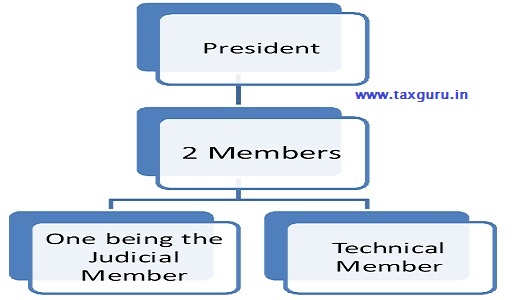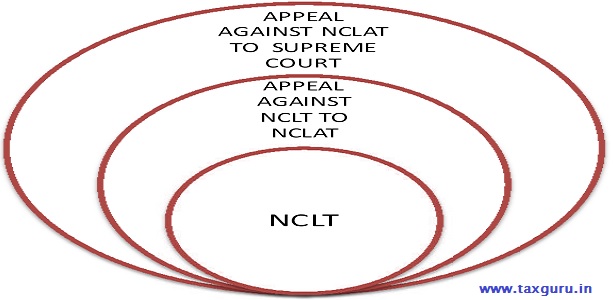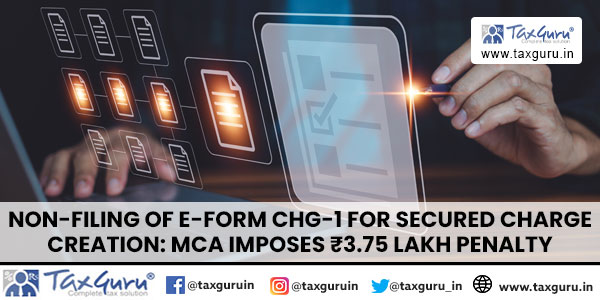C.S. K. Gaurav Kumar

NCLT and NCLAT Constitution impact Functioning under Companies Act, 2013
National Company Law Tribunal and National Company Law Appellate Tribunal
The Ministry of Corporate Affairs (“MCA”), has issued three notifications dated June 1, 2016, exercising the powers conferred upon it by Sections 434(1), 1(3),419(1) and 410 of the Companies Act 2013 (“the Act”), regarding:
1. Constitution of Company Law Tribunal (NCLT) and National Company Law Appellate Tribunal (NCLAT) (“the Tribunal”);
2. Notifying various sections of the Act (which were not effective due to non-constitution of NCLT);
3. Location of NCLT benches;
4. Dissolution of the Company Law Board as per Section 466 of the Act.
With the constitution of the NCLT and NCLAT, the Company Law Board established under the erstwhile Companies Act, 1956 stands dissolved.

List of Notifications Dated 01.06.2016-
| Title | Notification No. | Date |
| List of 29 Company Law Provisions effective from 01.06.2016 | S.O. 1934(E) | 01/06/2016 |
| Govt constitutes Benches of National Company Law Tribunal | S.O. 1935(E) | 01/06/2016 |
| Govt constitutes NCLAT for hearing appeals against orders of NCLT | S.O. 1933 (E) | 01/06/2016 |
Constitution and Functioning of the Tribunal:
The Tribunal shall consist of a President and such number of Judicial and Technical Members as may be required. The Principal Bench shall be located at New Delhi which shall be presided over by the President. The powers of the Tribunal shall be exercised by Benches (which shall be notified by the Central Government) consisting of two members, one being the Judicial Member and the other a Technical Member.
As notified, the Tribunal will initially consist of eleven Benches, two at New Delhi (one being the Principal Bench) and one each at Ahmedabad, Allahabad, Bengaluru, Chandigarh, Chennai, Guwahati, Hyderabad, Kolkata and Mumbai. Currently, Justice S.J. Mukhopadhyay, a Judge (Retd) of the Supreme Court of India has been appointed as Chairperson of the NCLAT and Justice M.M. Kumar, a Judge (Retd), has been appointed as President of the NCLT.

Provisions of the Act made effective with the constitution of the Tribunals:
| Section | Matter | Particulars |
| Section 7(7) [except clause (c) and (d)] | Incorporation of Companies | In cases where the Company has been incorporated by furnishing false or incorrect information the tribunal has powers to pass orders as it may deem fit.
However the power to remove the name and winding up of the company continues with the registrar of companies (ROC) and High Courts respectively. |
| Section 14 (1)and (2) | Alteration of Articles | Approval of the Tribunal shall be sought for conversion of public company to private company. |
| Section 55(3) | Issue and Redemption of Preference Shares | In cases where the Company is not in a position to redeem or pay dividend on preference shares, the company may issue fresh redeemable preference shares, with the approval of the Tribunal |
| Section 61(1)(b) | Power of limited company to alter its share capital | Consolidation or division of share capital which results in the changes in voting percentage of shareholders shall be done only with approval of the Tribunal. |
| Section 62(4),(5) and (6) | Further issue of share capital | If need arises for conversion of debentures issued or loan obtained from Government by a Company into shares and terms of such of conversion are not acceptable to the Company, appeal can be made with the Tribunal. |
| Section 71 (9) to (11) | Debentures | In cases where the company fails to redeem the debentures or pay interest on maturity, a petition may be filed with the Tribunal. |
| Section 75 | Damages for Fraud | The tribunal may grant extension of time to companies which fail to repay deposits and interest thereon in terms of Section 74(2) . |
| Section 97, 98 and 99 | Power of the Tribunal to call annual general meetings and meetings of Members | The Tribunal may on an application made by a member or director call for annual general meetings or members meetings |
| Section 119(4) | Inspection of minute books of general meetings | If any member is denied inspection or copies of minutes book of general meetings, the Tribunal has powers to direct immediate inspection or direct the copies be provided to the member. |
| Section 130 | Reopening of Accounts | Financial Accounts of the company shall be reopened only by an order made by the Tribunal. |
| Section 131 | Voluntary revision of financial statements or Boards’ report | Approval of Tribunal shall be sought for voluntary revision of financial statements and Boards’ report. |
| Section 140 Second proviso to sub-section (4) and sub-section (5) | Removal, resignation of auditor and giving of special notice | Tribunal shall act on an application made for removal of auditor or suo moto pass orders for removal of auditor. |
| Section 169(4) | Removal of Directors | Tribunal shall act on an application made for removal of director. |
| Section 213 | Investigation into company’s affairs in other cases | Tribunal may order investigations into the affairs of the company based on applications received from the concerned parties. |
| Section 216(2) | Investigation of ownership of company | Tribunal may direct investigation into membership/ownership of the company. |
| Section 218 | Protection of employees during investigation | Change in terms of employment, discharge, suspension, removal of employees during the course investigations requires prior approval of Tribunal |
| Section 221 | Freezing of assets of company on inquiry and investigation | The tribunal may restrict transfer, removal or disposal of assets for a period not exceeding three years. |
| Section 222 | Imposition of restriction upon securities | The tribunal may impose restriction on transfer of securities for a period not exceeding three years. |
| Section 224(5) | Action to be taken in pursuance of inspector’s report | In case of fraud, the Tribunal shall pass appropriate orders with regard to disgorgement of assets and also against the person found guilty. |
| Sections 241, 242 [except clause (b) of sub-section (1), clause (c) & (g) of sub-section (2)], 243, 244, and 245 | Prevention of Oppression and Mismanagement | The tribunal shall pass necessary orders in cases of mismanagement, oppression and class action suits. |
| Reference of word ‘Tribunal’ in sub-section (2) of section 399 | Inspection ,production and evidence of documents kept by Registrar | – |
| Sections 415 to 433 (both inclusive) | NCLT and NCLAT | Provisions related to constitution, functioning of benches orders and appeals NCLT and NCLAT orders have been dealt with in these sections. |
| Section 434(1)(a), (b) and (2) | Transfer of certain pending proceedings | All matters, proceedings or cases pending before the Company Law Board initiated under the Companies Act, 1956 shall stand transferred to the Tribunal.
Appeals against the orders of the Company Law Board passed before the constitution of the NCLT would continue to be made before relevant High Court. |
| Section 441 | Compounding of certain offences | The Tribunal shall compound offences where penalty imposed exceeds Rs.5 lakh or more and cases where maximum amount of penalty imposed does not exceed Rs.5 lakhs shall be dealt with by the Regional Director or such other officer authorised by the Central Government. |
| Section 466 | Dissolution of Company Law Board and consequential provisions | Provisions regarding dissolution of Company Law Board. |
Appeals:

All appeals against any order of the NCLT may be filed by the aggrieved parties with the NCLAT and thereafter with the Supreme Court (eliminating High Courts from the chain of adjudication). However, appeals against the orders of the CLB before the constitution of the NCLT would continue to be made before relevant High Court.
The Judgement of the Honourable Supreme Court on Madras Bar Associations vs. Union of India dated 14 May 2015 was significant in the constitution of Tribunals. The Companies (Amendment) Bill 2016 (pending approval before the Parliamentary Standing Committee) provided for constitution of NCLT and NCLAT in line with the said judgement.
While matters like class action suits, alteration of articles and may more will now be governed by NCLT, others relating to winding-up, compromise, amalgamation and capital reduction will continue to be under the purview of the high courts. Once the Tribunals commence, the matters handled by the Board of Industrial and Financial Reconstruction (BIFR), the Appellate Authority for Industrial and Financial Reconstruction and High Courts would eventually be transferred to NCLT. With this, NCLT and NCLAT are indented to act as a quasi-judicial body to adjudicate all disputes pertaining to indian companies. The primary objective is to provide a specialised dispute resolution mechanism for Indian corporates which is easily accessible, fast and efficient. It is to be seen as to how smooth the transition will happen.
( Author is associated with K. Gaurav Kumar & Associates & can be reached at csgauravkumarjain@gmail.com & on +91-98844 64319)


























